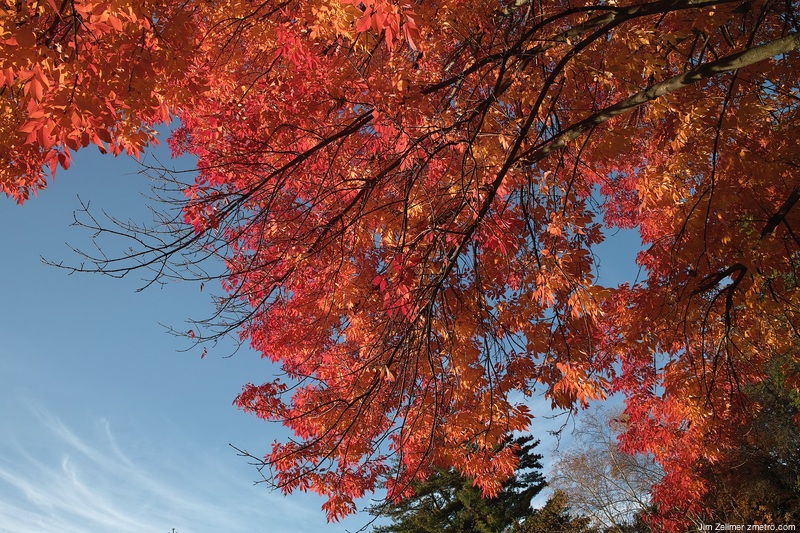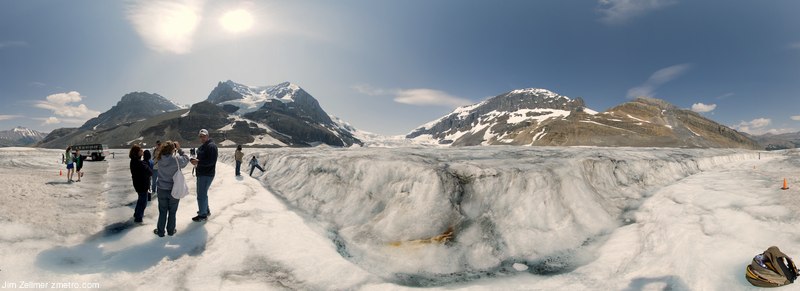
Madison has enjoyed a gorgeous, warm fall. Perhaps this will continue through April?

Madison has enjoyed a gorgeous, warm fall. Perhaps this will continue through April?

The journey to the glacier is an adventure, particularly the “Ice Explorer” ride.
Links:
While capturing this sunrise scene at Old Faithful recently, I learned that the BBC is shooting a 3 part series on Yellowstone. Their videographers, equipped with some very nice equipment, spent the past two mornings waiting for the “perfect” sunrise behind Old Faithful. This scene, on their third day, was best, according to their National Park Service Ranger minder. The program will evidently air in the UK this fall and here sometime in 2009.
Location: 44.460174 -110.829563
The kind ranger also mentioned that she is often asked “where they put the animals at night?”
Full screen vr scene.

Clusty Search: Lake Agnes Banff National Park Canada. This photo was taken after a hike up from Lake Louise. A pleasant “Tea House” awaits the hiker adjacent to Lake Agnes.
“Don’t be evil”, the motto of Google, is tailored to the popular image of the company–and the information economy itself–as a clean, green twenty-first century antidote to the toxic excesses of the past century’s industries. The firm’s plan to develop a gigawatt of new renewable energy recently caused a blip in its stock price and was greeted by the press as a curious act of benevolence. But the move is part of a campaign to compensate for the company’s own excesses, which can be observed on the bansk of the Columbia River, where Google and its rivals are raising server farms to tap into some of the cheapest electricity in North America. The blueprints depicting Google’s data center at The Dalles, Oregon are proof that the Web is no ethereal store of ideas, shimmering over our heads like the aurora borealis. It is a new heavy industry, an energy glutton that is only growing hungrier.
I wonder how the economics and energy consumption details compare between growing web applications and legacy paper based products?
OAKS Candy Corner in Oshkosh is a chocolate mirage.
Its gingerbread exterior yields to an interior that in winter is as sugary warm as the inside of a circus peanut and in summer is as refreshing as a wax Coke bottle. It smells like caramel corn and cocoa butter rubbed into the floorboards with a pair of Red Wing boots. It’s the shop just around the corner in an unremittingly blue-collar part of an unremittingly blue-collar town. It shouldn’t still be there, but there it is.
If Oaks Candy is a mirage, then the Hughes Homaid Chocolate Shop, less than half a mile away, is a figment of Wisconsin’s imagination. An 80-year-old bungalow two blocks from Lake Winnebago, it has only a small neon sign to state its trade and a full-blown candy-making operation in its basement.
But Oshkosh isn’t the only caretaker of these unlikely sweet dreams. There’s Beerntsen’s in Manitowoc, with its plate lunches and ice cream sodas; Wilmar Chocolates in Appleton, with its old-time awnings and row of state-fair prizes on the south wall; Kaap’s in Green Bay, with its jar of jawbreakers on the counter; Seroogy’s in De Pere, with its magical whipped-chocolate-filled “meltaways”; and more, much more.
Put down your highlighter and don’t bother checking your lottery tickets, because the State of Texas has announced a $100 million winner. Only it’s actually 30,000 drivers living in ozone goal non-attainment areas, and it will be doled out $3,000 at a time. And if you or your family are constrained by a certain income level, if you drive a vehicle 10 years old or older that’s been registered in the county for over a year and passed an emissions test up to 15 months ago, yet failed one recently, then the state is willing to pay you $3,000 to scrap your vehicle and get something newer. All in the name of clean air.
Considering that Texas is notoriously clutch-fisted with money for public projects, particularly when the bank account starts with $100 million, this is big news. Especially if your vehicle’s more than 10 years old and has extremely high mileage – or the kind that brings virtually nothing when you go to trade it in – this is a money-for-nothing proposition that can benefit you tremendously. So, before we go on with today’s column, check out the rules for this program at www.driveacleanmachine.com, and then call 1-800-898-9103 to apply for your voucher.
for curbing greenhouse gas emissions and pursuing energy independence lies in cellulosic ethanol. That’s ethanol that could be brewed from things like corn stalks, straw, wood chips — things we normally throw away.
Companies have been racing to find cost-effective ways to make this form of ethanol. A company called Range Fuels in Georgia is scheduled to break ground Tuesday on the world’s first plant for making cellulosic ethanol.
Audio
Range Fuels website.
This new series looks at contemporary American culture through the austere lens of statistics. Each image portrays a specific quantity of something: fifteen million sheets of office paper (five minutes of paper use); 106,000 aluminum cans (thirty seconds of can consumption) and so on. My hope is that images representing these quantities might have a different effect than the raw numbers alone, such as we find daily in articles and books. Statistics can feel abstract and anesthetizing, making it difficult to connect with and make meaning of 3.6 million SUV sales in one year, for example, or 2.3 million Americans in prison, or 426,000 cell phones retired every day. This project visually examines these vast and bizarre measures of our society, in large intricately detailed prints assembled from thousands of smaller photographs.
My only caveat about this series is that the prints must be seen in person to be experienced the way they are intended. As with any large artwork, their scale carries a vital part of their substance which is lost in these little web images. Hopefully the JPEGs displayed here might be enough to arouse your curiosity to attend an exhibition, or to arrange one if you are in a position to do so. The series is still in its early stages, and new images will be posted as they are completed, so please stay tuned.
The author of the nation’s strongest global warming law tells us how California is responding to climate change and how she gained the political support to get it done …
“Leading the Way on Climate Change”
a free public lecture by Fran Pavley
3:30 p.m. Wednesday, April 25
Memorial Union (see “Today in the Union” for room)
800 Langdon Street
University of Wisconsin-Madison
Fran Pavley has served three terms in the California State Assembly, where she is known as one of the most effective legislators in Sacramento. The former Mayor of Agoura Hills and long-time public school teacher is the author of landmark legislation (the Global Warming Solutions Act of 2006) on global warming that has become a model for other states and countries. She is also author of the first regulations on vehicle carbon dioxide emissions. Eleven other states and Canada have modeled their laws after Pavley’s Clean Car Regulations. She has been selected as one of Scientific American’s Top Technology Leaders in Transportation and received the 2006 California League of Conservation Voters’ Global Warming Leadership Award along with former Vice President Al Gore.
This event is co-sponsored by the Nelson Institute for Environmental Studies and the Department of Atmospheric and Oceanic Sciences at UW-Madison. For more information, please contact Steve Pomplun at the Nelson Institute or call Steve at 263-3063.